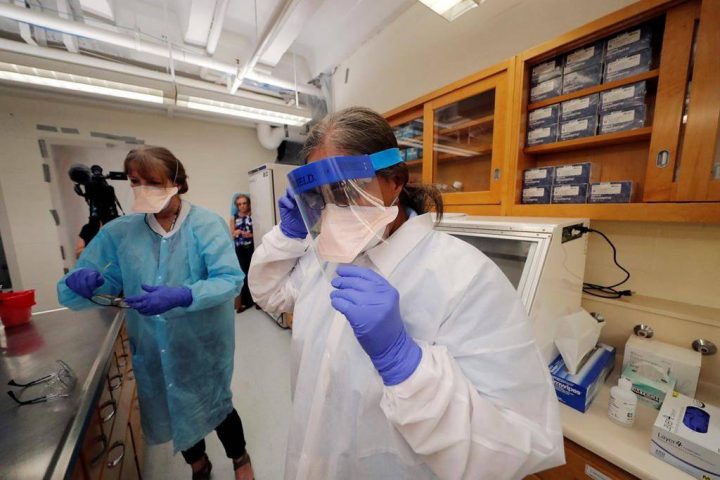The Saskatchewan Health Authority (SHA) is reassuring the public it’s not rationing personal protective equipment (PPE) for frontline health-care workers during the COVID-19 pandemic.

“We are looking at how we ensure that we are keeping the supplies safe, ensuring that they’re used appropriately, but we’re not rationing,” SHA CEO Scott Livingstone said.
Livingstone said he is aware of one case of rationing on the emergency floor of the Regina General Hospital. He said a manager was limiting PPE masks to two per worker each shift, but noted the SHA did not give that direction.
Like other provinces across the country, PPE is hard to maintain, according to the SHA.
A task force is set up to determine best practices when using PPE to make sure it isn’t wasted or misused.

Get weekly health news
“The Saskatchewan Health Authority is not short of any PPE at this time,” Livingstone said. “There has been no direction across SHA to ration, but we have locked down supplies to ensure that we’re using it appropriately.”
While Saskatchewan has only four patients in hospital due to COVID-19, the SHA said there are concerns as the pandemic continues.
“We’re not experiencing anywhere near our peak number of cases on an in-patient basis, so we’re not burning through our PPE as we will once things start gearing up,” Livingstone said.
Proper use of PPE and the public’s efforts to slow transmission will be the deciding factors as to whether or not the SHA faces a PPE shortage, according to Livingstone.
Questions about COVID-19? Here are some things you need to know:
Health officials caution against all international travel. Returning travellers are legally obligated to self-isolate for 14 days, beginning March 26, in case they develop symptoms and to prevent spreading the virus to others. Some provinces and territories have also implemented additional recommendations or enforcement measures to ensure those returning to the area self-isolate.
Symptoms can include fever, cough and difficulty breathing — very similar to a cold or flu. Some people can develop a more severe illness. People most at risk of this include older adults and people with severe chronic medical conditions like heart, lung or kidney disease. If you develop symptoms, contact public health authorities.
To prevent the virus from spreading, experts recommend frequent handwashing and coughing into your sleeve. They also recommend minimizing contact with others staying home as much as possible and maintaining a distance of two metres from other people if you go out.
For full COVID-19 coverage from Global News, click here.








Comments